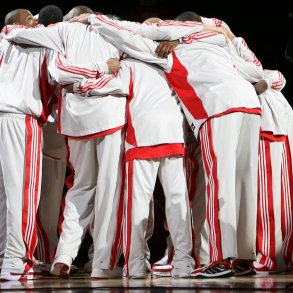By Claudia Gross and originally published on Huffpost
Are your organization’s “officers” supposed to be fighting all day? Do you allow your employees to be empowered? Can a unit be a team, and how human are resources?
Do you emancipate your employees? What’s your market value, what’s your price tag?
Could women work man-days? And are you going to die when you meet the deadline?
Questions and nuances in language such as these have led me to focus more attention on how we talk and what we write, especially as it relates to the Future of Work.
To my surprise even articles and books that describe new organizational models or more progressive management approaches are often expressed in very traditional language.
Using Traditional Language to Express Transformation?
- Military
- Masters
- Machine
- Make-Do
- Money
- Machismo, and
- Mafia
Let’s have a closer look at these 7 M’s.
Military
Historically the practice of management is rooted in the military so it’s no surprise that many of the terms we currently use in business and organizations have their origin in the battlefield.
We hire new recruits and structure our corporations in divisions and departments. The headquarters is led by a general director who manages a variety of officers. The field structure builds the frontline to the customer who is welcomed at the front desk.
General managers rally the troops with a call to arms using an innovative arsenal of weapons, sometimes free-lancers. Organizational soldiers fight to capture market share, gain margins from the target audience and win over competitors.
More often than not, it’s about victory or defeat.
Masters
Traditional management literature refers to hierarchies, often as steep as pyramids, with a well-defined chain of command (a “pecking order”) and a multitude of top, higher, middle and lower management levels.
Superiors manage subordinates. Chiefs and Heads give top-down directives and delegate tasks to those “below.” Typically, the team members are called “staff” (a military term) or “employees,” an Industrial Age holdover that symbolizes one person working for another.
The seemingly progressive term “self-management” still reflects the traditional way of thinking. Assuming that there would be a manager, teams are managing themselves now, therefore “self-managing” – whilst not managing oneself as a person, but actually co-managing a team together.
Machine
Since the industrial revolution and with the subsequent development of management theories by Taylor and Ford, machine terms and metaphors are still deeply embedded in our business language.
The process starts with a pipeline of candidates and the concern for the optimal employee utilization within the chain, and taking stock of existing personnel. The top gear is concerned about the efficient use of tools and techniques and the uninterrupted functioning of the business units or silos, ideally operating like clockwork.
We are part of the battery of employees; we reverse-engineer, enroll, fine-tune and build solutions. We engineer… experiences, opportunities and our luck.
Effective organizations are well-engineered economic engines.
Make-Do
Many authors in recent management literature use statements that imply that team members are passive objects: it’s about “them” and “us” instead of “we.” The authors suggest to make and have them do…, manage them…, use them…, force them…, make them feel like…, get them working on…, let them… and push them… to their limits.
These passive formulations are not a sheer semantic phenomenon. They express the traditional power where employees “are given,” “are enabled,” or “it is ensured that they” etc.
Even when recommendations are made to improve the situation, the wording still limits people to “be provided with opportunities” and “make them” do something to “emancipate employees.”
Money
It probably all started with Benjamin Franklin’s “time is money.” The monetization of our life is expressed when we save or spend time, earn our living, give credit to someone’s contribution, get emotionally invested, pay attention and even compliments.
At work we are considered assets or Human Capital bringing in our market value. Our relationships become Social Capital. We have a worth (avoid poor performance!) and a credibility that gets buy-in from our colleagues. And yes, we even have to earn trust.
We mortgage our dreams for money and hope that this trade-off will pay-off. Otherwise it takes a toll on us and we’ll pay the price.
Machismo
While many invitations address “Ladies and Gentlemen,” most often we speak about “men and women,” “boys and girls,” etc. It seems that once we got more gender-aware, the missing female term was simply added after the male resulting in “he and she.”
Consequently this order is also used in official forms and questionnaires asking for “Mr” before “Mrs,” and “male” before “female.”
Once you get sensitized to this male-dominated language, you will be surprised by “female landlords,” “female freshmen,” and “female heroes.”
Interestingly enough we only speak about career women and working mums, whilst not having an expression for career men and working dads.
Mafia
It started with the term “deadline” and my wondering if it might be dangerous to hit it, and consequently changing it to “due date” or “big day” whenever possible.
And then more “mafia speak” in management language appeared. Some are so used to pulling the trigger, killing the enemy or crushing an idea that they aren’t afraid that this way of thinking and speaking might backfire.
Employees with killer strengths are on the hunt for new business ideas. Their boss shoots emails, holds people’s feet to the fire, and expects them to beat the rival. “Headhunter” is a job title.
Truly competitive people die to win.
Be an Author of the Future
The 7 M’s provide you with popular formulations used in today’s management language. One can only guess what destructive and detrimental effect this language has had on us, on how we manage and develop organizations and the world we live in. Some questions you might want to ask yourself:
- What language do you use in your organization?
- Which terms are typical of your work environment?
- Can you spot which of the 7 M’s you are using more than others?
- What would it be like to change the way you speak and write?
- Which expressions or areas of the 7 M’s would you start to change first?
The authors of the New York Times bestseller Tribal Leadership have highlighted in their book the importance of language for sustainable development:
“If people change their words (…), they change their perception of reality (…). As they change their reality, their behavior changes automatically.” And they continue by saying, “If a tribe changes its language, it stays changed.”
Become authors and creators of a better future by intentionally choosing a more life-affirming language. Adapting Mahatma Gandhi’s famous quote, let’s express the change we want to experience in this world, word-by-word.
Dr. Claudia Gross is both the founder of human-centered Organizational Governance promoting life at work and the initiator of speakGreen which is offering a new emerging vocabulary that is providing a generative, constructive language for the future. Both initiatives blended smoothly into each other for this article.
Republished with permission of the author.
Featured Image/graphic link and block quoting added by Enlivening Edge Magazine.




